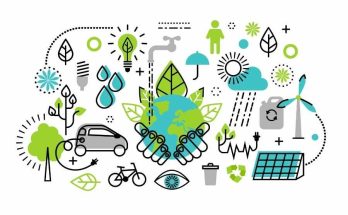By Alejandro Angulo
One of the principles of a circular economy is recycling. However, this should not be confined to the field of production processes and waste management. A commitment to a circular economy must include other actions like social recycling. As a society, as citizens, this is what we need to do in order to solve the problems of the economy and current society at the root. It is because of this that we say that social recycling is essential to achieve fairer, more equitable, more inclusive, more egalitarian societies with greater social cohesion.
Social Recycling Social recycling is a prosocial behavior akin to giving gifts to others, which again research has shown to be associated with increased happiness. And if we start from this premise, then, this social recycling demands solidarity as a condition to the point of transforming it into a common, shared good of which all its members are collective owners and which all take care of jointly by virtue of the defense it provides them. facing two inseparable horrors such as misery and indignity, that is, facing the terror of being excluded from the accelerated engine of progress and being condemned to social superfluity and assigned the label of human waste.
For this, the city with social recycling will take us by the hand to the so-called social urbanism that privileges human interaction, communication, community action, social encounter, the inclusion of all, from public spaces, social works , parks and gardens for everyone, without missing culture and public events. It is time to recycle today’s society.
Notwithstanding the foregoing, it is not possible to think of it without the environmental issue in the city, which is why territorial recycling is proposed, that is, building the future and the nature that we need in the urban space. Make it more habitable for everyone, and considering that what worked yesterday is no longer today, that is why we must think about those territories that must be recycled with a social and environmental approach to make the city a more habitable place according to the conditions current.
Environmental recycling must go through the urban ecology approach, and above all put emphasis on biodiversity and its ecosystem services that it provides to living beings and in particular to human beings.
One of the characteristics of today’s urban society is the suppression of agricultural land, regardless of the importance of soil biodiversity, which guarantees the continuity of ecological functions and processes. Thinking only about the value of the land when converting it into residential use is a reductionist way of valuing it, because in truth, today its diversity has much more value for the immediate future, which makes food, medicines, textiles, and the reproduction of trees and vegetation possible. to provide oxygen production, CO2 capture, water infiltration to already deficient aquifers, to regulate the climate, attenuate noise, and to give emotional calm.
Recycling the urban territory in environmental terms means taking it to a stage of naturalization based on native species of natural ecosystems to ensure certain connectivity, contiguity, protection of habitats for local fauna species, such as birds and pollinators.
In short, solidarity and naturalization are two fundamental elements of social and environmental recycling for current times in urban contexts.
It would be a mistake to continue keeping the urban from the environmental separate, on the contrary, the two are part of an indissoluble whole that conditions and interacts.
The circular economy is deeper than it seems.




